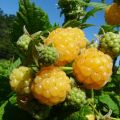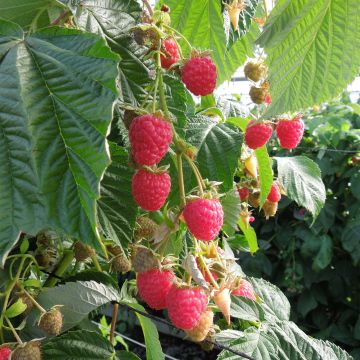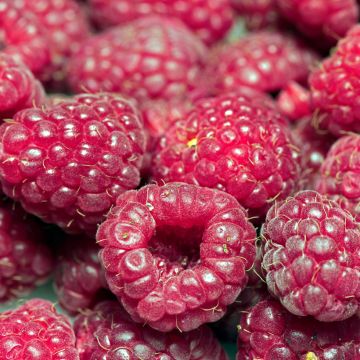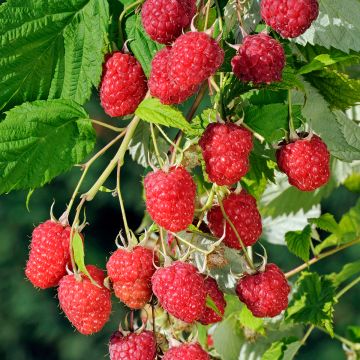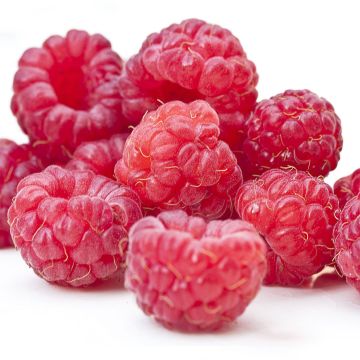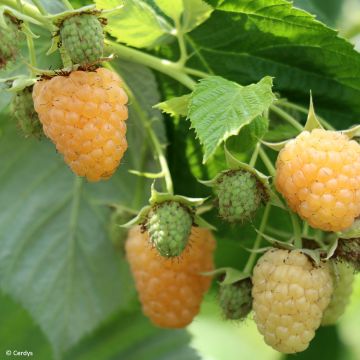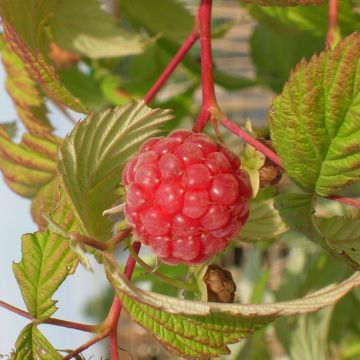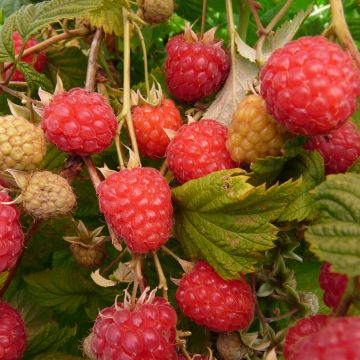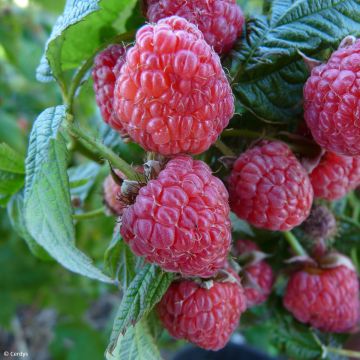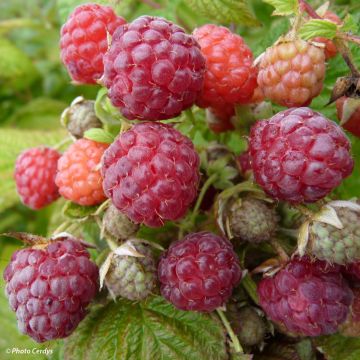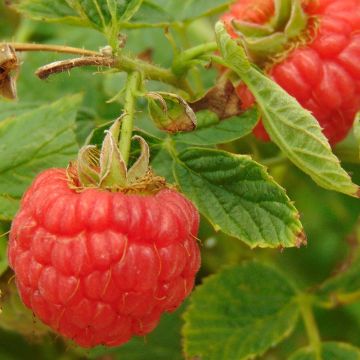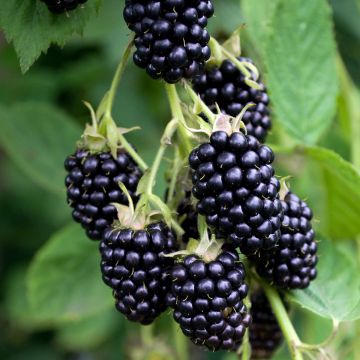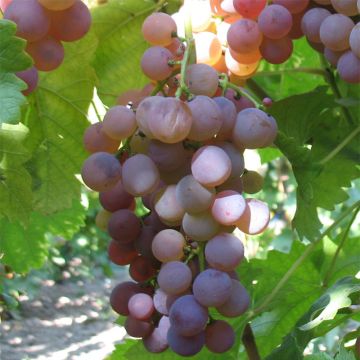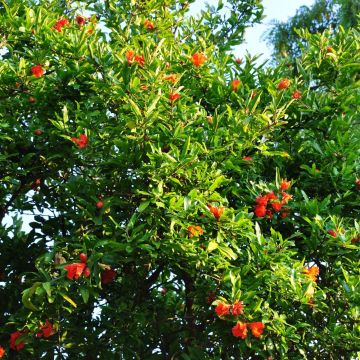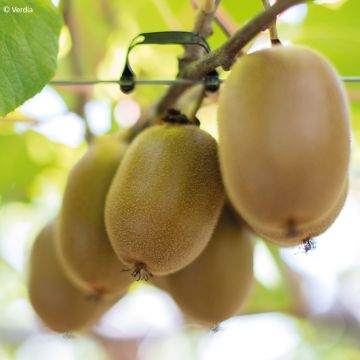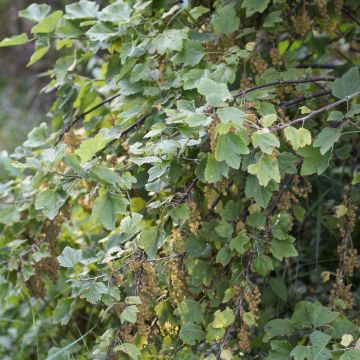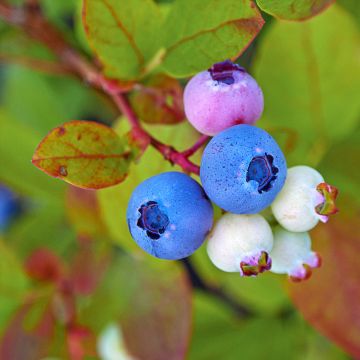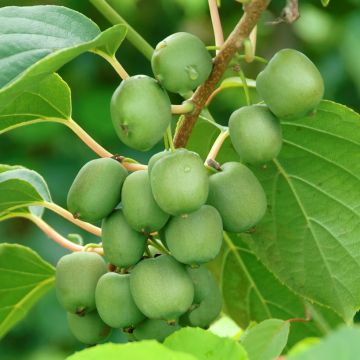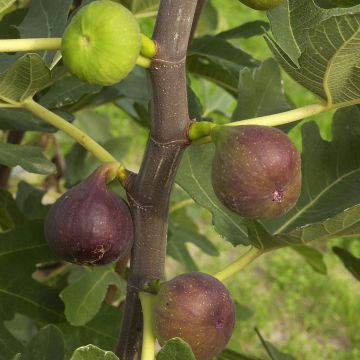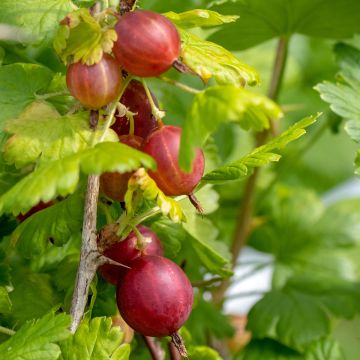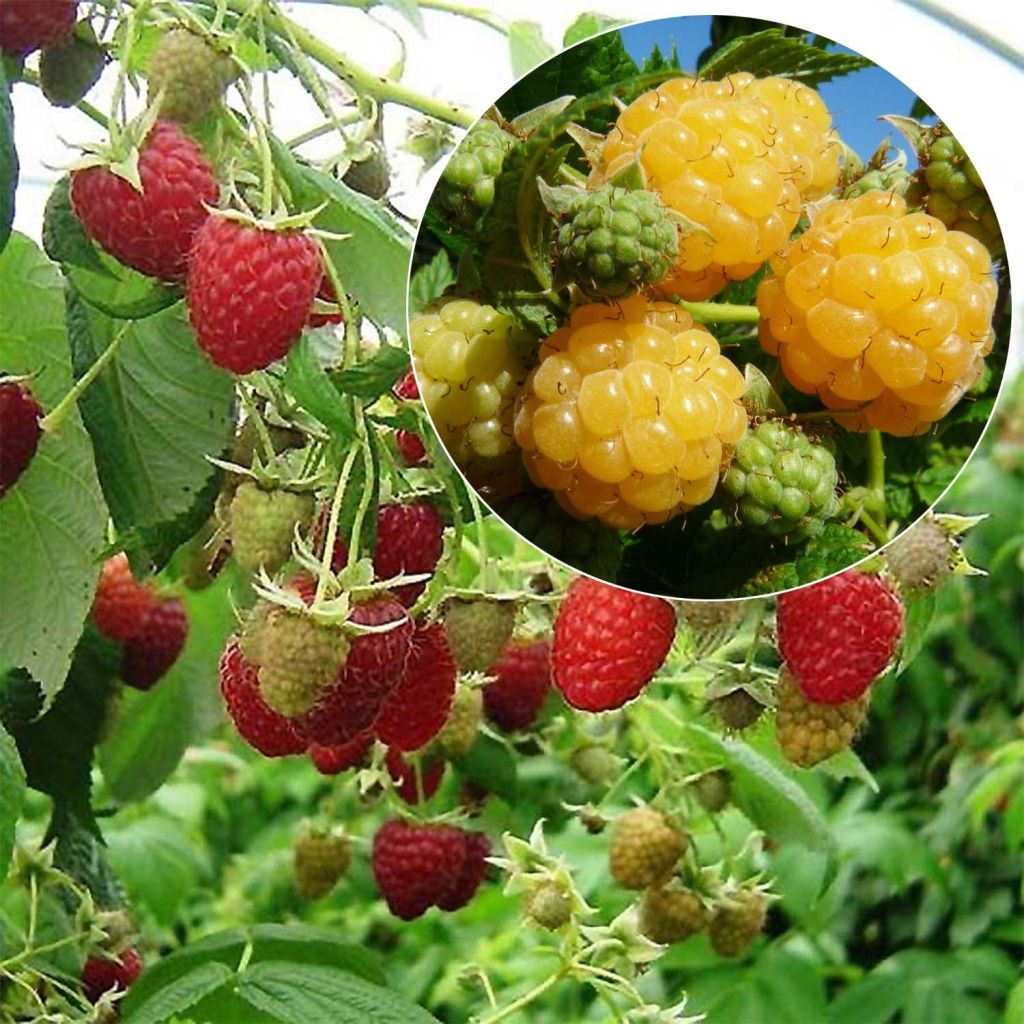

Wood 2 organic raspberry plants collection
Wood 2 organic raspberry plants collection
Rubus idaeus Marastar, Golden Everest
Raspberry
This plant carries a 6 months recovery warranty
More information
We guarantee the quality of our plants for a full growing cycle, and will replace at our expense any plant that fails to recover under normal climatic and planting conditions.
From €5.90 for pickup delivery and €6.90 for home delivery
Express home delivery from €8.90.
Delivery to Corse prohibited: UE law prohibits the import of this plant from mainland France to Corse as part of the fight against Xylella fastidiosa. Please accept our sincere apologies.
More information
Collection items (2 plants)
Description
This Collection of 2 organic perpetual raspberry bushes brings together the 'Marastar' raspberry bush, with large red fruits, and the 'Golden Everest' raspberry bush, which produces large yellow-orange fruits. Both varieties offer tasty and extended harvests, from July to October. The plants are vigorous and easy to grow, but they prefer humus-rich soils that retain moisture, even in summer, without too much limestone. Plant your raspberry bushes near the vegetable garden or on the edge of a grove, in a partially shaded but bright location. Planting from October to March. Plants from Organic Agriculture.
The collection consists of:
- 1 x Organic 'Marastar' Raspberry Bush - Rubus idaeus: an excellent and highly productive variety. Its fruit is conical, of good size and firmness, sweet and fragrant, with a very appetizing bright red color. It is a compact plant (1.30 m (4ft) in all directions), particularly vigorous and sucker-producing, hardy, and not very susceptible to diseases, perfect for amateur gardeners. Each plant will produce up to 3 kg of fruit per year, or even more. Container cultivation is possible.
- 1 x Organic 'Golden Everest' Raspberry Bush - Rubus idaeus: a variety with a medium yield, rather early, producing clusters of large, roundish fruits, yellow-orange in color, aromatic and slightly acidic. Its brightly colored raspberries attract fewer birds, which saves the gardener from having to put nets on the bushes.
Separately labeled
Raspberry bushes can be associated with other small fruits such as currants or blackcurrants in a delicious hedge. The fruits can be used to make jams or to garnish pies. The cultivation of raspberry bushes seems to date back to the late Middle Ages. In the forest, five to ten years after a beech tree has been cut down in particular, wild raspberry bushes appear in the vacant space, producing fruit for three to four years. Raspberries are not very energy-rich, they contain two specific sugars, levulose and fructose, and very little sucrose. The fruits also contain ellagic acid, tannins, vitamin C, and are a good source of potassium. It is also a medicinal plant, with its young shoots and buds being used in gemmotherapy.
Report an error about the product description
Plant habit
Fruit
Flowering
Foliage
Botanical data
Rubus
idaeus
Marastar, Golden Everest
Rosaceae
Raspberry
Cultivar or hybrid
Other Raspberry plants
Planting and care
The Raspberry prefers humus-rich soils that retain moisture, even in summer, without too much limestone. It appreciates partially shaded but bright exposures. In the north, it will tolerate full sun, while in the south, it will prefer partial shade. Plant it from November to March in ordinary soil enriched with compost and well-decomposed manure. Water it regularly to promote root development in the first year of planting. During periods of high heat or prolonged drought, provide it with additional water. The raspberry can sometimes be subject to various diseases if the growing conditions are not optimal (raspberry anthracnose, raspberry rust, powdery mildew, grey rot during rainy periods, or Botrytis). The damage observed in cultivation is due to poor climatic conditions, especially during cold springs that allow micro-fungi present in the soil to infest the vegetation. To protect the plants, it is recommended to fertilize the raspberries with organic fertilizers that promote the multiplication of anaerobic bacteria in the soil, which strengthens the soil's ability to stimulate the plants' immune system. Raspberries can also be attacked by certain parasites such as the raspberry worm, the larva of a small beetle that lodges in the fruits without causing significant damage.
Planting period
Intended location
Care
This item has not been reviewed yet - be the first to leave a review about it.
Berries
Haven't found what you were looking for?
Hardiness is the lowest winter temperature a plant can endure without suffering serious damage or even dying. However, hardiness is affected by location (a sheltered area, such as a patio), protection (winter cover) and soil type (hardiness is improved by well-drained soil).

Photo Sharing Terms & Conditions
In order to encourage gardeners to interact and share their experiences, Promesse de fleurs offers various media enabling content to be uploaded onto its Site - in particular via the ‘Photo sharing’ module.
The User agrees to refrain from:
- Posting any content that is illegal, prejudicial, insulting, racist, inciteful to hatred, revisionist, contrary to public decency, that infringes on privacy or on the privacy rights of third parties, in particular the publicity rights of persons and goods, intellectual property rights, or the right to privacy.
- Submitting content on behalf of a third party;
- Impersonate the identity of a third party and/or publish any personal information about a third party;
In general, the User undertakes to refrain from any unethical behaviour.
All Content (in particular text, comments, files, images, photos, videos, creative works, etc.), which may be subject to property or intellectual property rights, image or other private rights, shall remain the property of the User, subject to the limited rights granted by the terms of the licence granted by Promesse de fleurs as stated below. Users are at liberty to publish or not to publish such Content on the Site, notably via the ‘Photo Sharing’ facility, and accept that this Content shall be made public and freely accessible, notably on the Internet.
Users further acknowledge, undertake to have ,and guarantee that they hold all necessary rights and permissions to publish such material on the Site, in particular with regard to the legislation in force pertaining to any privacy, property, intellectual property, image, or contractual rights, or rights of any other nature. By publishing such Content on the Site, Users acknowledge accepting full liability as publishers of the Content within the meaning of the law, and grant Promesse de fleurs, free of charge, an inclusive, worldwide licence for the said Content for the entire duration of its publication, including all reproduction, representation, up/downloading, displaying, performing, transmission, and storage rights.
Users also grant permission for their name to be linked to the Content and accept that this link may not always be made available.
By engaging in posting material, Users consent to their Content becoming automatically accessible on the Internet, in particular on other sites and/or blogs and/or web pages of the Promesse de fleurs site, including in particular social pages and the Promesse de fleurs catalogue.
Users may secure the removal of entrusted content free of charge by issuing a simple request via our contact form.
The flowering period indicated on our website applies to countries and regions located in USDA zone 8 (France, the United Kingdom, Ireland, the Netherlands, etc.)
It will vary according to where you live:
- In zones 9 to 10 (Italy, Spain, Greece, etc.), flowering will occur about 2 to 4 weeks earlier.
- In zones 6 to 7 (Germany, Poland, Slovenia, and lower mountainous regions), flowering will be delayed by 2 to 3 weeks.
- In zone 5 (Central Europe, Scandinavia), blooming will be delayed by 3 to 5 weeks.
In temperate climates, pruning of spring-flowering shrubs (forsythia, spireas, etc.) should be done just after flowering.
Pruning of summer-flowering shrubs (Indian Lilac, Perovskia, etc.) can be done in winter or spring.
In cold regions as well as with frost-sensitive plants, avoid pruning too early when severe frosts may still occur.
The planting period indicated on our website applies to countries and regions located in USDA zone 8 (France, United Kingdom, Ireland, Netherlands).
It will vary according to where you live:
- In Mediterranean zones (Marseille, Madrid, Milan, etc.), autumn and winter are the best planting periods.
- In continental zones (Strasbourg, Munich, Vienna, etc.), delay planting by 2 to 3 weeks in spring and bring it forward by 2 to 4 weeks in autumn.
- In mountainous regions (the Alps, Pyrenees, Carpathians, etc.), it is best to plant in late spring (May-June) or late summer (August-September).
The harvesting period indicated on our website applies to countries and regions in USDA zone 8 (France, England, Ireland, the Netherlands).
In colder areas (Scandinavia, Poland, Austria...) fruit and vegetable harvests are likely to be delayed by 3-4 weeks.
In warmer areas (Italy, Spain, Greece, etc.), harvesting will probably take place earlier, depending on weather conditions.
The sowing periods indicated on our website apply to countries and regions within USDA Zone 8 (France, UK, Ireland, Netherlands).
In colder areas (Scandinavia, Poland, Austria...), delay any outdoor sowing by 3-4 weeks, or sow under glass.
In warmer climes (Italy, Spain, Greece, etc.), bring outdoor sowing forward by a few weeks.


































